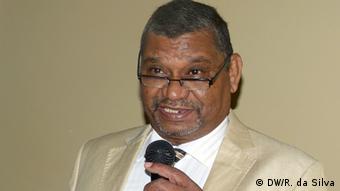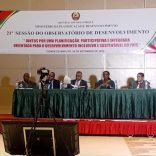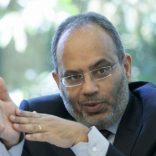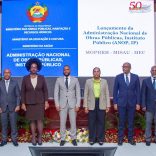Mozambique: Largest university operating on 38% of budget needed - rector
“Mozambique’s debt is sustainable” – Economist Ragendra de Sousa

DW (File photo) / Gas exploration in the Rovuma basin
As Mozambique begins to negotiate the restructuring of hidden debts to foreign banks, there are still doubts about whether the country will be able to cope with debts almost equalling the country’s GDP.
In an interview with DW Africa, analyst Ragendra de Sousa says that investments in gas production in northern Mozambique can be the way out of the crisis, and that the value of the economy is enough to pay debts estimated at US$1.4 billion, is still sustainable.
In an interview with DW Africa, the analyst says he believes that investments in gas projects in the north of the country are a possible medium-term solution.
“If GDP grows, the percentage of debt reduces, and what is unsustainable can easily turn out to be sustainable,” he says.
DW Africa: Mozambique is to sign agreements with creditors to restructure hidden debts estimated at 1.4 billion dollars. Do you believe that the government will pay this amount?
Ragendra de Sousa (RS): The responsibility for the execution of any loan is both from the financer and in financed. This is true not only for Mozambique, it is an international rule. They lent, yes. We borrowed, yes. But the responsibility is shared. I want to believe that on the Mozambican side, there will be every effort for these companies to commence production. For their part, the lenders have to cooperate so that payment in fact comes from production and not from the citizen’s taxes.

DW Africa: Is this process going to take a long time?
RS: Judging by another company that was restructured, EMATUM, I believe that with goodwill and with the techniques on the table, this is a process that can be completed in a month, barring mishaps. For our part, great care has to be on the interest charged on the restructuring. If the entire burden falls on Mozambique, we will have a prohibitive interest rate.
DW Africa: And with the possibility of higher interest rates, is Mozambican debt still sustainable?
RS: Although the stock of the economy is low, expectations short to medium term are not so negative. We are talking about a period of one to two years. But we are sure that, like the production of coal, which is still ongoing, gas will also come. It’s a matter of time. One does not leave gas reserves such as those in Mozambique unexploited simply because the debt is above the agreed ratio with the IMF. It makes no sense. The value of the Mozambican economy shows that it is possible to pay. The problem is when. And that ‘when’ has to do with the gas projects in the north. This is the attitude to take whether there is a crisis or not.
DW Africa: Financial rating agencies such as Standard and Poor’s and Fitch have lowered their assessment of Mozambique credit. What is the impact of debt externally?
RS: The first consequence is to prevent Mozambique going to normal capital markets and getting access to credit. But if GDP grows, the percentage of debt reduces and unsustainable easily might become sustainable. This on its own does not remove all the credibility problems. But it leads us to believe that, in the short-term, projects must be implemented for the country to be able to maintain imports of essential goods, and also reduce the possibility of internal social crisis.
DW Africa: Do you believe that there will be accountability for hidden loans?
RS: The ruling party’s last Central Committee meeting directed the government to go to parliament and provide a more detailed explanation. I want to believe that the process will be conducted so that the image and the internal and external credibility of the country are regained. Our Attorney’s Office has also opened two cases to study and investigate these claims. At the institutional level, at least the steps have been taken.













Leave a Reply
Be the First to Comment!
You must be logged in to post a comment.
You must be logged in to post a comment.